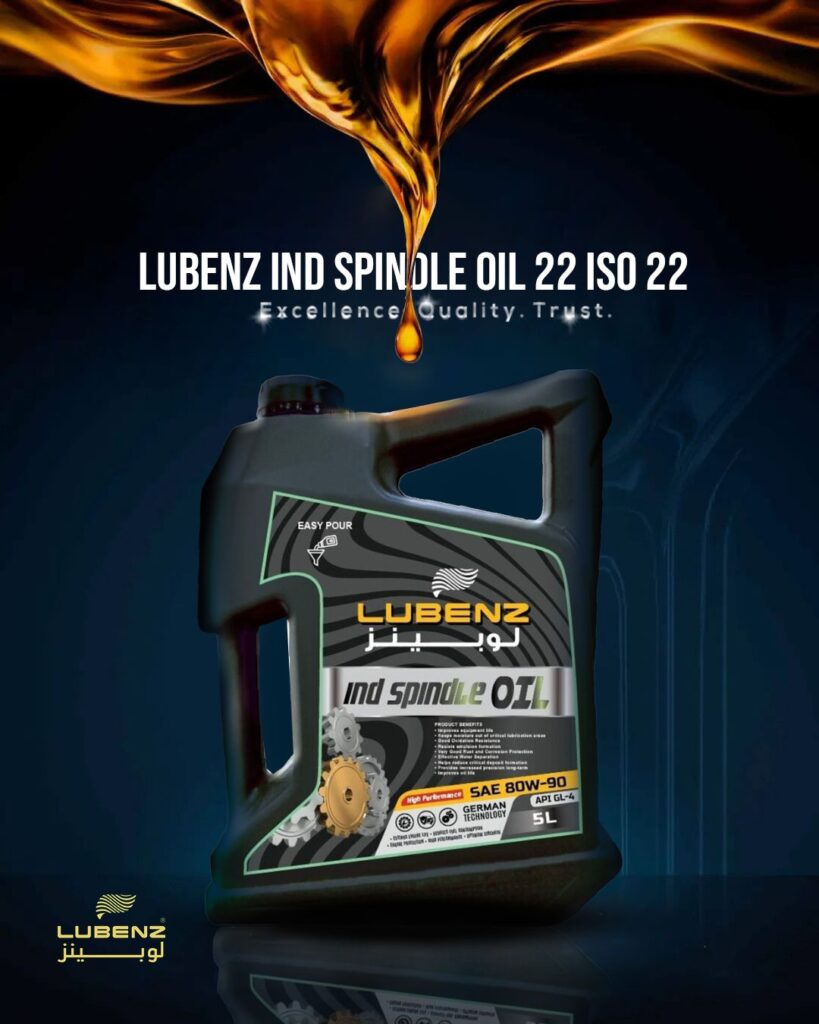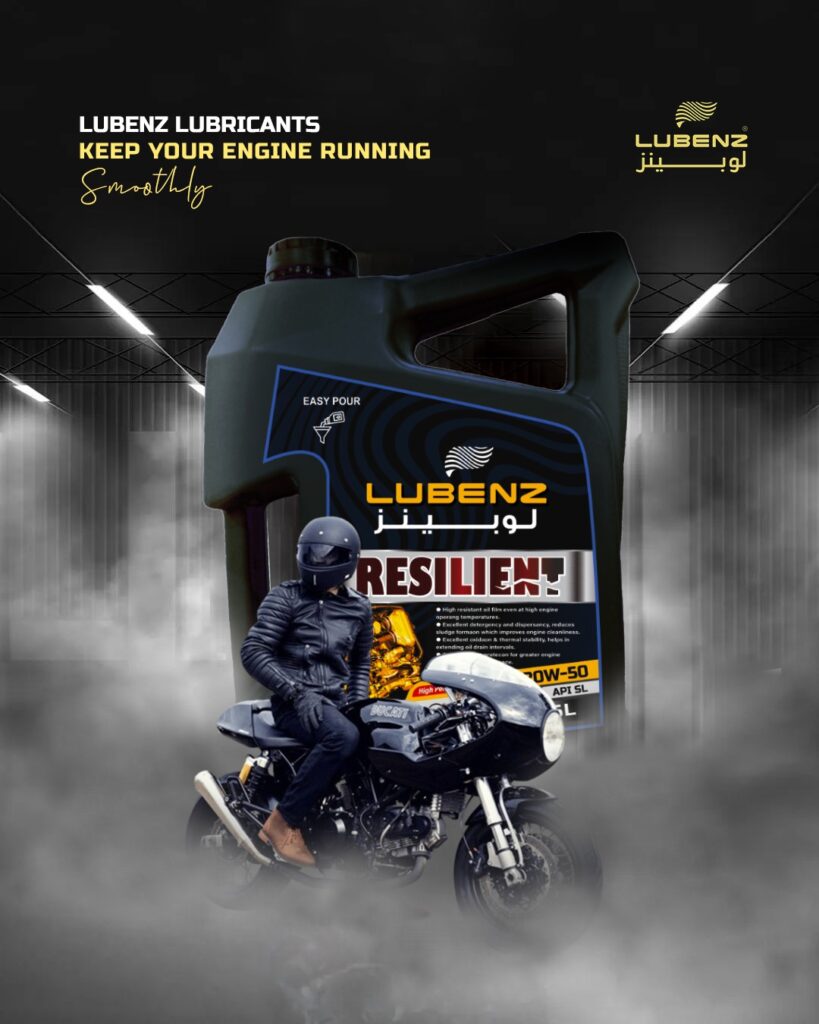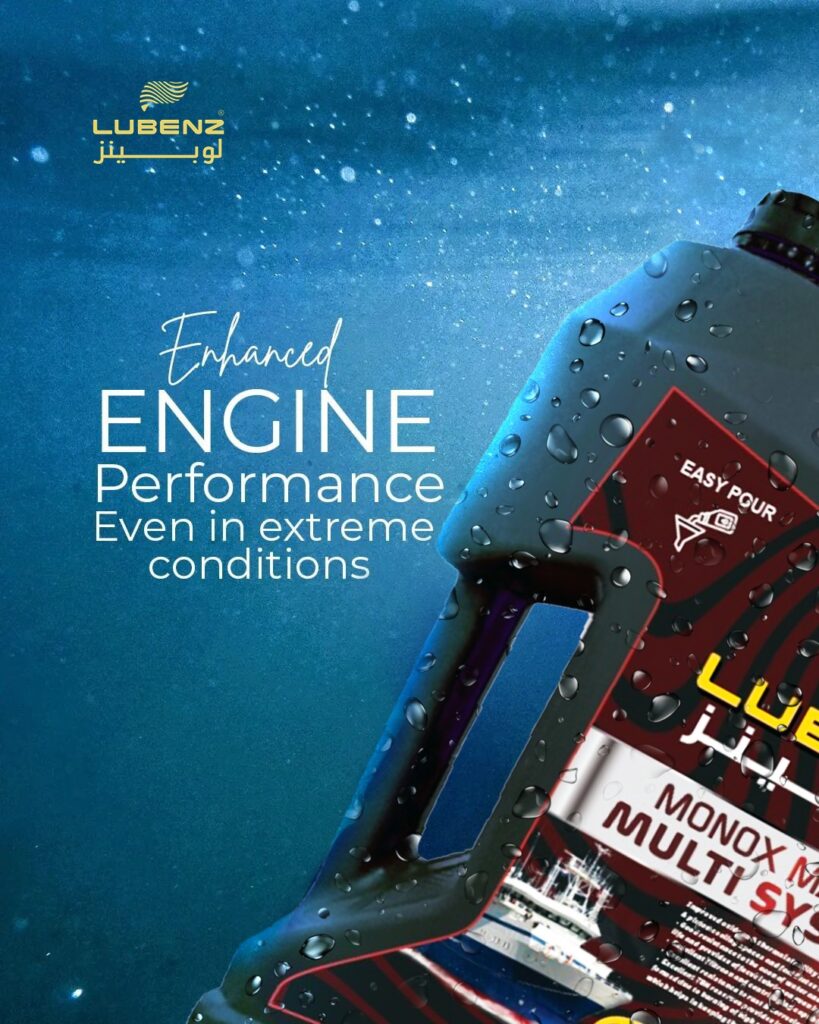In Libya, as in many other regions, various types of greases are used across different industrial sectors to meet specific lubrication requirements. Some common types of greases used in Libya include:
Lithium Greases: Lithium-based greases are versatile and widely used for general-purpose lubrication in automotive, industrial, and agricultural equipment. They offer good water resistance, thermal stability, and mechanical stability under moderate operating conditions.
Calcium Greases: Calcium-based greases are known for their excellent water resistance and anti-corrosion properties. They are commonly used in applications where moisture or water exposure is a concern, such as marine environments and outdoor equipment.
Complex Soap Greases: Greases formulated with complex soaps, such as lithium complex or aluminum complex greases, offer enhanced performance characteristics. They provide higher temperature resistance, mechanical stability, and shear stability compared to conventional lithium or calcium greases.
Polyurea Greases: Polyurea-based greases are known for their high temperature stability and resistance to oxidation. They are often used in applications where extreme temperature ranges and long lubrication intervals are required, such as in electric motors and sealed-for-life bearings.
Biodegradable Greases: Environmentally friendly greases formulated with biodegradable base oils and additives are used in environmentally sensitive applications, such as agriculture, forestry, and marine sectors. They comply with ecological regulations and minimize environmental impact.
High-Performance Synthetic Greases: Synthetic greases, such as those based on polyalphaolefin (PAO) or polyalkylene glycol (PAG) base oils, offer superior performance in extreme temperature conditions, high load applications, and where extended lubrication intervals are required. They provide enhanced oxidation resistance and thermal stability.
Food-Grade Greases: Greases formulated with NSF H1 registered ingredients are used in food processing and pharmaceutical industries where incidental contact with food is possible. These greases comply with strict food safety regulations and ensure the integrity of food production equipment.
These types of greases cater to specific operational requirements and environmental conditions prevalent in Libya's industrial sectors, supporting efficient and reliable performance of machinery and equipment across various applications.
GRESES IMPACTS
GREASE Manufacturer in Libya GREASE Manufacturer in Libya GREASE Manufacturer in Libya GREASE Manufacturer in Libya GREASE Manufacturer in Libya GREASE Manufacturer in Libya GREASE Manufacturer in Libya GREASE Manufacturer in Libya GREASE Manufacturer in Libya GREASE Manufacturer in Libya GREASE Manufacturer in Libya GREASE Manufacturer in Libya
Greases have significant impacts across industrial, commercial, and environmental domains due to their crucial role in lubrication and maintenance. Here are several key impacts of greases:
Equipment Reliability and Performance: Greases lubricate moving parts of machinery and equipment, reducing friction and wear. This enhances operational reliability, extends equipment lifespan, and ensures consistent performance in diverse industrial applications.
GREASE Manufacturer in Libya GREASE Manufacturer in Libya GREASE Manufacturer in Libya GREASE Manufacturer in Libya GREASE Manufacturer in Libya GREASE Manufacturer in Libya GREASE Manufacturer in Libya
Cost Efficiency: Proper lubrication with greases reduces maintenance costs by minimizing wear on components and preventing costly breakdowns and repairs. It also improves energy efficiency by reducing frictional losses, resulting in lower operational expenses.
GREASE Manufacturer in Libya GREASE Manufacturer in Libya GREASE Manufacturer in Libya GREASE Manufacturer in Libya GREASE Manufacturer in Libya GREASE Manufacturer in Libya GREASE Manufacturer in Libya GREASE Manufacturer in Libya V GREASE Manufacturer in Libya GREASE Manufacturer in Libya GREASE Manufacturer in Libya GREASE Manufacturer in Libya GREASE Manufacturer in Libya
Safety Enhancement: Well-lubricated equipment operates more safely by reducing the risk of mechanical failures and accidents. Greases contribute to maintaining equipment integrity and operational stability, enhancing workplace safety for personnel.
Environmental Impact: Modern greases are formulated with biodegradable base oils and environmentally friendly additives, minimizing their ecological footprint. They help comply with environmental regulations and support sustainable practices in industrial operations.
Operational Efficiency: Greases optimize the performance of machinery under various operating conditions, including high temperatures, heavy loads, and harsh environments. They ensure smooth operation, improve productivity, and support continuous production processes.
Versatility Across Industries: Greases are used in diverse industries such as automotive, manufacturing, mining, aerospace, and marine sectors. Their versatility in applications ranging from heavy machinery to precision instruments underscores their universal importance in industrial lubrication.
Innovation and Technology Advancements: Ongoing research and development in grease formulations lead to innovations in lubrication technology. Advanced greases offer improved performance characteristics, such as high temperature resistance, extreme pressure protection, and extended service intervals.
Economic Contribution: The grease manufacturing and lubrication industry contribute to economic growth by generating employment, supporting supply chains, and enhancing industrial productivity. Local production reduces dependency on imported lubricants, fostering economic resilience and industrial self-sufficiency.
Global Standards and Compliance: Greases adhere to international standards and regulatory requirements for quality, safety, and environmental protection. Compliance ensures product reliability and customer confidence in diverse global markets.
Overall, greases play a critical role in maintaining operational efficiency, extending equipment lifespan, enhancing safety, and promoting sustainability in industrial practices worldwide. Their impacts span across multiple facets of industrial operations, contributing to economic growth and technological advancement in various sectors.
GREASES MYTHS
There are several common myths and misconceptions about greases that are important to clarify:
Myth: Grease lasts indefinitely once applied.
Fact: While greases provide long-term lubrication, they do degrade over time due to factors like temperature, moisture, and mechanical stress. Regular inspection and reapplication are necessary to maintain optimal performance.
Myth: More grease is always better for equipment.
Fact: Over-greasing can lead to issues such as increased friction, overheating, and seal damage. Proper lubrication amounts, as recommended by equipment manufacturers, prevent excess buildup and ensure effective performance.
Myth: All greases are interchangeable.
Fact: Greases vary in composition, viscosity, and additives, making them suitable for specific applications and conditions. Using the wrong type of grease can lead to poor performance, equipment damage, or safety hazards.
Myth: Grease does not need to be cleaned off equipment surfaces.
Fact: Excess grease buildup on equipment can attract dirt and contaminants, leading to accelerated wear and potential operational issues. Proper cleaning and maintenance practices are essential for equipment longevity.
Myth: Grease is harmful to the environment.
Fact: Modern greases are formulated with biodegradable base oils and environmentally friendly additives. They comply with regulatory standards and minimize environmental impact, supporting sustainability goals.
Myth: Grease does not affect energy efficiency.
Fact: Properly applied grease reduces friction between moving parts, improving energy efficiency by minimizing energy losses. Inefficient lubrication can lead to increased energy consumption and operational costs.
Myth: Grease is not important for sealed bearings and components.
Fact: Sealed bearings and components still require lubrication to maintain their performance and extend their service life. Proper lubrication ensures seals remain effective and prevents internal components from overheating or seizing.
Myth: Grease properties do not change with temperature.
Fact: Grease performance varies with temperature extremes. Specialized greases are formulated to maintain viscosity and lubrication effectiveness in both high and low temperature environments.
Clarifying these myths helps ensure proper understanding and application of greases in industrial, commercial, and automotive settings. Following manufacturer recommendations and industry best practices is crucial for maximizing the benefits of greases while avoiding potential pitfalls.
GRESES HIGHLIGHTS IN AUTOMOTIVE
Greases play essential roles in various automotive applications, ensuring smooth operation, longevity, and safety of vehicle components. Here are some highlights of greases in the automotive sector:
Wheel Bearings: Greases lubricate wheel bearings to reduce friction and wear, supporting smooth rotation of wheels and ensuring optimal performance and safety while driving.
Chassis Components: Greases are used in lubricating chassis components such as ball joints, tie rods, and suspension systems. They help reduce noise, vibration, and harshness (NVH), enhancing ride comfort and stability.
Universal Joints: Greases lubricate universal joints in drivetrains, allowing for efficient power transmission between shafts while minimizing wear and extending component life.
Steering Systems: Greases ensure smooth operation of steering racks and components, enhancing steering responsiveness and reliability.
Hinges and Latches: Greases are applied to door hinges, hood latches, and trunk mechanisms to prevent rusting, ensure smooth operation, and extend the lifespan of these components.
Brake Systems: Greases are used in caliper slide pins and other brake components to prevent sticking, ensure even braking force distribution, and maintain braking efficiency and safety.
Electrical Contacts: Specialized greases are used in electrical connectors and switches to prevent corrosion, improve conductivity, and ensure reliable electrical performance in vehicle electronics.
High-Temperature Applications: Greases formulated for high-temperature applications, such as wheel bearings and disc brake systems, maintain lubrication integrity under extreme heat conditions, ensuring safety and performance.
Sealed and Lubricated for Life (LFL) Applications: In modern vehicles, greases are used in sealed and LFL components to provide long-term lubrication without the need for maintenance, reducing service intervals and enhancing convenience.
Environmental Considerations: Automotive greases are developed with environmentally friendly formulations, including biodegradable options for applications where eco-friendly lubrication solutions are required.
Overall, greases are critical in the automotive industry for enhancing vehicle reliability, performance, and safety. Their diverse applications across different vehicle systems contribute to smoother operation, reduced maintenance needs, and extended lifespan of automotive components.
GREASES IMPORTANCE IN CONSTRUCTION
Greases play a crucial role in the construction industry, where heavy machinery and equipment operate under demanding conditions. Here are several key reasons why greases are important in construction:
Lubrication of Heavy Machinery: Construction equipment such as excavators, bulldozers, loaders, and cranes rely on greases to lubricate critical components like bearings, gears, and hydraulic systems. Greases reduce friction, heat, and wear, ensuring smooth operation and extending the lifespan of expensive machinery.
Protection Against Harsh Environments: Construction sites often expose equipment to dust, dirt, water, and varying temperatures. Greases formulated with additives for corrosion resistance and water repellency protect equipment from environmental elements, preventing rust and premature component failure.
Enhanced Performance and Efficiency: Properly lubricated machinery operates more efficiently, reducing energy consumption and improving productivity. Greases maintain optimal performance of moving parts, preventing breakdowns and costly downtime.
Safety and Reliability: Well-lubricated equipment is safer to operate, with reduced risks of mechanical failures and accidents. Greases contribute to maintaining equipment integrity and operational stability, ensuring the safety of workers and site personnel.
Extended Maintenance Intervals: Greases with long-lasting formulations or designed for specific applications, such as high-temperature or heavy-load environments, support extended maintenance intervals. This reduces the frequency of lubrication tasks and downtime for maintenance, enhancing operational efficiency.
Versatility Across Equipment Types: From compact machinery to large earthmoving equipment, greases offer versatility in lubrication solutions tailored to the specific needs and operating conditions of different construction equipment.
Specialized Applications: Greases are used in specialized construction equipment components such as pins, bushings, and hydraulic cylinders. They provide adequate lubrication under high pressure and harsh operating environments, ensuring reliable performance.
Environmental Considerations: Modern greases include environmentally friendly formulations with biodegradable base oils and additives. This supports construction companies in adhering to environmental regulations and sustainability goals while maintaining effective equipment lubrication.
In summary, greases are indispensable in the construction industry for maintaining equipment reliability, enhancing operational efficiency, ensuring safety, and prolonging the lifespan of machinery and components. Their role in lubricating heavy-duty equipment under challenging conditions contributes significantly to the overall success and efficiency of construction projects.
In 2024, greases continue to play a critical role across various industries and applications due to their fundamental importance in lubrication and maintenance. Here are some key aspects highlighting the importance of greases this year:
Industrial Machinery Maintenance: Greases are essential for lubricating industrial machinery, including manufacturing equipment, processing machinery, and automation systems. They reduce friction, prevent wear, and ensure smooth operation, thereby optimizing production efficiency and minimizing downtime.
Automotive Sector: In the automotive industry, greases are vital for lubricating wheel bearings, chassis components, steering systems, and other critical parts. They contribute to vehicle safety, reliability, and performance, supporting smooth operation and extending the lifespan of automotive components.
Construction and Mining: Greases play a crucial role in lubricating heavy machinery and equipment used in construction, mining, and earthmoving operations. They protect against extreme conditions such as high loads, dust, dirt, and moisture, ensuring equipment reliability and operational efficiency on construction sites and mining operations.
Energy Sector: In the oil and gas industry, greases are used in drilling rigs, pumps, compressors, and offshore equipment. They withstand harsh operating conditions and ensure reliable performance, contributing to efficient exploration, production, and refining processes.
Transportation and Logistics: Greases lubricate bearings, gears, and moving parts in transportation equipment such as trucks, buses, trains, and ships. They support safe and efficient transportation operations, reduce maintenance costs, and enhance vehicle reliability.
Environmental Sustainability: Modern greases are developed with environmentally friendly formulations, including biodegradable base oils and additives. They help industries comply with environmental regulations and promote sustainable practices while maintaining effective equipment lubrication.
Technological Advancements: Ongoing research and development in grease formulations lead to innovations in lubrication technology. Advanced greases offer improved performance characteristics, such as high temperature resistance, extreme pressure protection, and extended service intervals, meeting the evolving needs of modern industries.
Economic Impact: The grease manufacturing and lubrication industry contribute to economic growth by creating jobs, supporting supply chains, and enhancing industrial productivity. Local production reduces dependency on imported lubricants, fostering economic resilience and industrial self-sufficiency.
Overall, in 2024, greases continue to be indispensable in various sectors for ensuring equipment reliability, enhancing operational efficiency, promoting safety, and supporting sustainable development goals. Their role in lubricating critical machinery and equipment remains essential for the smooth functioning of industries worldwide.
GRESRES QUALITY STANDARDS
Greases adhere to several quality standards and specifications to ensure their effectiveness, reliability, and safety in various applications. Some of the key quality standards and specifications that greases typically comply with include:
NLGI (National Lubricating Grease Institute) Standards: NLGI sets standards for the consistency and performance characteristics of greases. Greases are classified into different grades based on their consistency, ranging from NLGI grade 000 (fluid) to NLGI grade 6 (very hard). These standards ensure uniformity in grease performance and application suitability.
ASTM (American Society for Testing and Materials) Standards: ASTM develops standards for the physical and chemical properties of greases, including viscosity, dropping point, penetration, and performance under specific conditions such as temperature and load. ASTM standards ensure greases meet industry requirements for quality and performance.
ISO (International Organization for Standardization) Standards: ISO standards provide guidelines for grease specifications, testing methods, and performance characteristics. ISO 6743, for example, covers the classification and designation of greases based on their consistency, base oil type, and additive composition.
DIN (Deutsches Institut für Normung) Standards: DIN standards are widely used in Europe to define the properties and testing methods of greases. DIN standards ensure greases meet specified requirements for performance, safety, and environmental compatibility.
OEM (Original Equipment Manufacturer) Specifications: Many greases are formulated to meet the specific requirements and recommendations of equipment manufacturers. OEM specifications ensure compatibility with the lubrication needs of particular machinery and components, enhancing reliability and performance.
Environmental and Safety Regulations: Greases may need to comply with regulatory requirements concerning environmental impact, health, and safety. For instance, greases used in food processing, marine environments, or sensitive ecosystems must meet specific regulatory standards to minimize environmental contamination and ensure product safety.
Industry-Specific Standards: Certain industries, such as aerospace, automotive, mining, and food processing, have their own set of standards and specifications for greases. These standards ensure greases meet the unique operational and safety requirements of each industry sector.
By adhering to these quality standards and specifications, greases ensure consistent performance, reliability, and safety across various industrial applications. Manufacturers and users rely on these standards to select greases that meet specific performance criteria and environmental considerations while supporting equipment longevity and operational efficiency.
Grease wholesaler in Libya
Grease supplier in Libya




